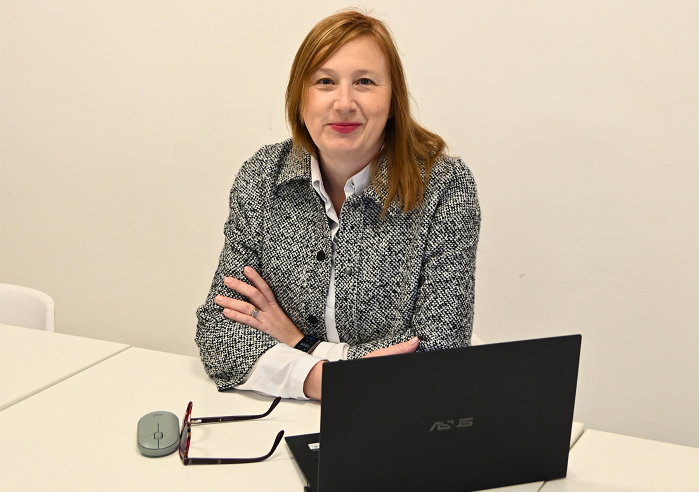This article has been published as a chronicle in Version2. The original article can be read here.
By Ejvind Jørgensen, Chairman of the Danish IT Committee for IT in the Public Sector
Minister for Digitisation Marie Bjerre has said this in several of her first speeches: Digitalisation can help solve the major societal challenges of our time. It is also in the latest digitisation strategy from 2022, and we hear it time and time again at digitisation conferences, fairs and events. This is also true, and in Denmark we have built up a unique position of strength over the years, which we can now benefit from. For example, Denmark has rightly been voted No. 1 in the eGovernment by the UN in the last three times.
In order to harness our position of strength, to meet the many aspirations of digitalisation and to avoid the technological backdrop, we need political leadership that thinks both strategically and long-term. It has been fighting for this for many years. That is why we welcome the appointment of Marie Bjerre and the establishment of a digitalisation committee in the Danish Parliament.
There’s it in all today. This also applies to all ministries, which thus have a responsibility to develop and maintain digitalisation in their territory. Just as it was with the Ministry of Climate, it is good that the Ministry of Digitalisation can now play a coordinating and strategic role across ministries and authorities in order to deliver one strategic direction and approach for the many efforts needed to help us with the societal challenges. At the same time, it is good news with the Digitalisation Committee, which can build an insight and experience with the digitalisation of society in the Danish Parliament and thereby contribute to a healthy digital development – for and with the citizens. But not least, in this way we can have a democratic conversation about digitalisation.
The tasks in the near future are huge. Therefore, we will use this article to give Marie Bjerre and the Digitalisation Committee our idea of how we can really succeed in using digitalisation to solve the great challenges of our time.
Firstly, we need a strategy that sets the framework for society’s digital foundations. The digital society stands and falls with long-term strategies for building and developing digital foundations to address security, address vulnerabilities and achieve societal efficiency. Modern digital foundations are just as important as classical infrastructure as rails, roads or bridges. This could benefit the private and public sectors and make society more competitive as a whole. But there is one more perspective. Because innovation is decentralised in its nature, digital foundations must help us to digitise more efficiently and securely locally in municipalities and companies, because key digital foundations and services can be drawn from. In other words: On digital foundations, land must be built. It requires political leadership and vision, as well as the ability and willingness to cross-set direction and establish cooperation. Here there is a need for a Minister of Digitalisation and a good digitalisation committee who understands what is at stake.
The Ministry of Digitisation as a coordinating agency assumes a key role in ensuring transparency and citizens’ trust in digitalisation. Denmark is one of the societies in the world where there is the greatest confidence in the state. This is a very strong force, and it must not be jeopardised because of the failure or distortion of digitalisation. We need to digitise wisely. Right now, there are signs that things are going the wrong way. The conversion of NemID to MitID is an example of the people’s trust. When more than 20 % of the population find it difficult to understand and implement the shift, we have not done well enough. The many headlines about security challenges cause trust to begin to slip. In terms of transparency, ENGLISH IT has for more than a decade advocated that it should be a legal requirement for citizens to be able to see who has accessed data about them. In this way, transparency is created and the citizen can control the state. We also believe that the fact that the citizen should be able to follow himself should be a matter of course. “Look at your own case” was to be found in the 2016 strategy but is far from being implemented consistently.
“The citizen first” was the headline when the Management Commission published its report in 2017. Well, what else could you ask? The politician, the official, the union, the boss…? Changing strategies have had similar slogans without really taking the consequence. Digital inclusion has become a key concept of digitalisation. Initiatives that lead the public sector to think outside, and not vice versa, when digitised need to be taken seriously. We must be guided by the value that needs to be created for the citizen or the company. That must be our clue when we digitise. At the same time, good alternatives must be made available to those who cannot be digital and help those who have difficulties. We must not exclude citizens from the public sector. The Minister’s first bill on exemption from mandatory digital self-service is a step in the right direction, but with smart and insightful digitalisation, digitalisation is and will continue to be more a solution to a number of our challenges than a problem. Here we must move on and take citizens (and smaller companies for that matter) much more seriously when we create IT solutions. We could start by making it a principle that a minister or a senior official could themselves be able to apply the solutions they put in place.
The public sector faces a heavy burden in terms of older IT systems in need of modernisation. The Digitalisation Partnership has made a big deal of this. In ENGLISH IT, we urge to modernise wisely. When you want to renew older IT solutions, you often stand at the same time as a legal basis that is not reassessed and thought into a contemporary digital context. In fact, it turns out that efforts to make legislation digitised have been focused on new legislation and not on modernisation of existing legislation. Therefore, the renewal of older IT solutions must start with an assessment of whether the process is appropriate and whether legislation can be made more flexible and simpler before resorting to the acquisition of new IT solutions. Otherwise, you are wasting money on new IT systems that manage stubborn legislation, and don’t get the value out of the investments that you could have received.
There is a need for a new approach to digitalisation, especially in the public sector. Numerous examples of IT projects run in the forest with large budget overruns, which are greatly delayed or far from delivering the value that was envisaged, call for a fundamental clash with the prevailing approach. We are pleased that the Minister has already stated that something needs to be done about the problem. We suggest that we take the UK slogan “No more big IT” to us. History must have taught us that we cannot cope with major digitisation projects. So let’s take the consequence and think differently. Smart money is needed – not a lot of money. We must force ourselves to use methods where visible results are continuously generated that create value, and where only more money is allocated to IT projects that prove that they are on the right track. Like the UK, we need to create an undergrowth of creative and innovative companies that can offer tasks by cutting things more. It will also contribute to increased competition.
The challenge exists everywhere, not just in digitalisation. But we need a skilled workforce. Otherwise, the great opportunities that Denmark is facing will be slowed down. Digital solutions contribute to Denmark’s competitiveness, and the many companies contribute to growth and prosperity. However, the labour challenge requires a broad-spectrum approach: more study places, think digitalisation into much more higher education, the image of jobs in digitalisation needs to be improved by focusing on what digitalisation actually accomplishes and means for people. However, this is not just a task for politicians. Companies themselves must actively engage in the struggle and use unconventional methods. We’re better off focusing on skill development. A Whitebox study shows that a boost in maturity and mastering of IT processes could unleash thousands of IT employees who are otherwise preoccupied with correcting errors and deficiencies.
Further to the above recommendations on digital competences, we must design our education system in such a way that from the youngest years the focus is on the development of creative competences, mastering of digital tools and the development of digital education. New generations must be equipped for the digital society. Technology is needed in public schools. Now. Everywhere. The rapid transformation of the education system during COVID-19 has helped to change the traditional teaching pattern. It must be strategically followed up and used to rethink the way we educate.
We need to think across borders. Despite recent international crises, we continue to live in a global society. As a small country, we depend heavily on our surroundings. Digitalisation must therefore make it easier for people to work and study in Denmark. Right now, many administrative rules and requirements apply to attracting and retaining foreign labour. We cannot afford this at a time when labor is lacking all over the place. But we also need to think about digitalisation in the other way. How to best support Danes abroad? They contribute to earnings and act as ambassadors for Denmark and must therefore be given the best possible connection via digital support.
There is a need for a rethink of administrative regulations that make work more and more complex for businesses. There is no doubt that regulations are important, but we have yet to see a society that has “regulated itself to greatness”. The Digital Partnership has here put forward a number of good proposals on how the public sector itself can capture data more automatically. However, we need to think longer. By far the largest part of Danish legislation stems from EU regulation, which is why efforts must be focused here, bearing in mind that it will be the small and medium-sized enterprises that make up Denmark’s growth locomotives. At the same time, we can bear in mind that we do not over-implement EU legislation in Denmark, as has been done, for example, in the field of procurement. We therefore need a strategy and a direction for deregulation. It is good news that we have a reform government that can address this challenge.
We need a real strategy for digitalisation of society “Denmark” now that we have gained political leadership. Looking back at the series of common public digitisation strategies, they have most of all borne the mark of being project catalogues. A number of initiatives gathered from the drawers of the parties involved. In fact, strategic thinking and strategic approaches have been a long way in between. The decision on mandatory digital communication from the 2012 strategy is one example of a courageous decision that moved the whole of society. With a coordinating ministry in the lead and a strong digitalisation committee in the Danish Parliament, our hope is that the political leadership is ready to meet the many challenges we face with a focus on long-term strategic thinking and with the necessary courage and risk appetite that we need.
Saznaj više
-
Digitalna tehnologija / specijalizacija:
Digitalne vještine
-
Razina digitalnih vještina:
Napredno
Stručnjak za digitalni sektor
Osnovno
Srednja
-
Geografski opseg - Država:
Danska
-
Vrsta inicijative:
Lokalna inicijativa




